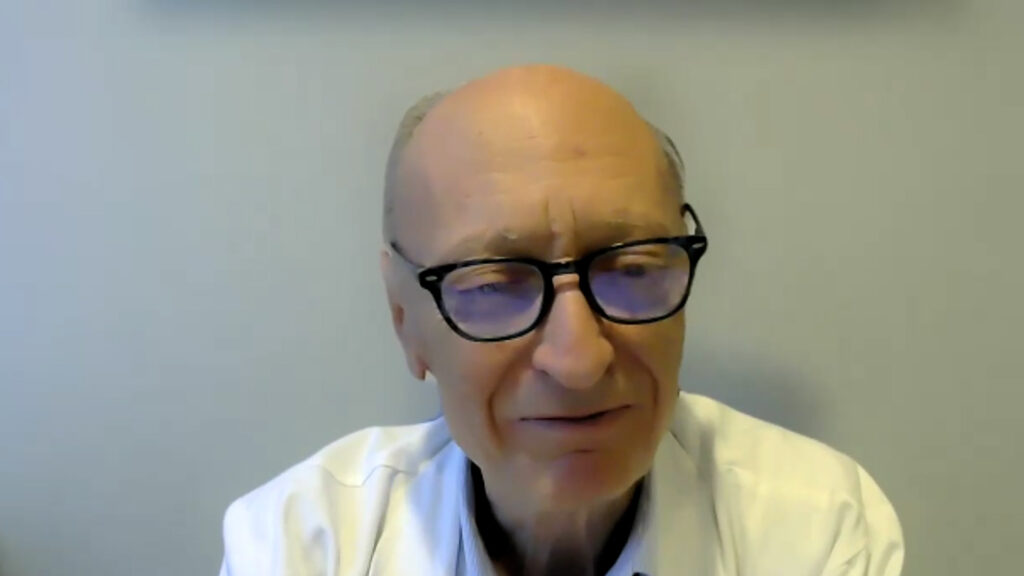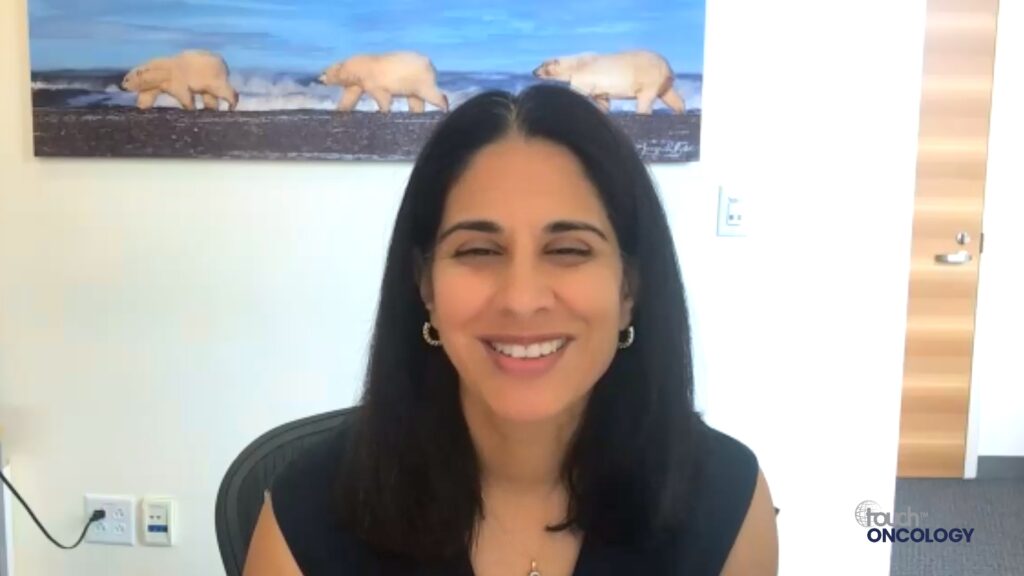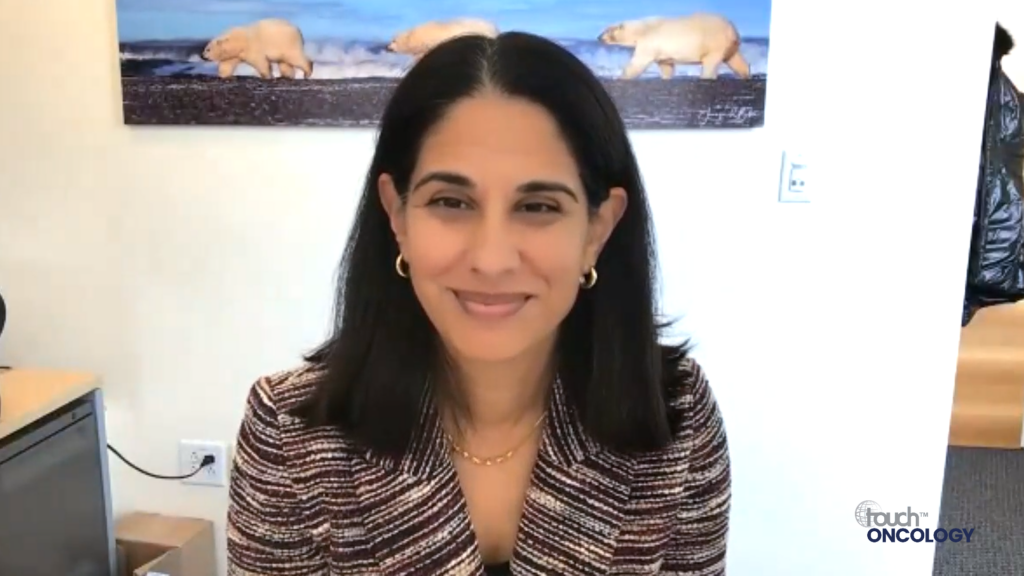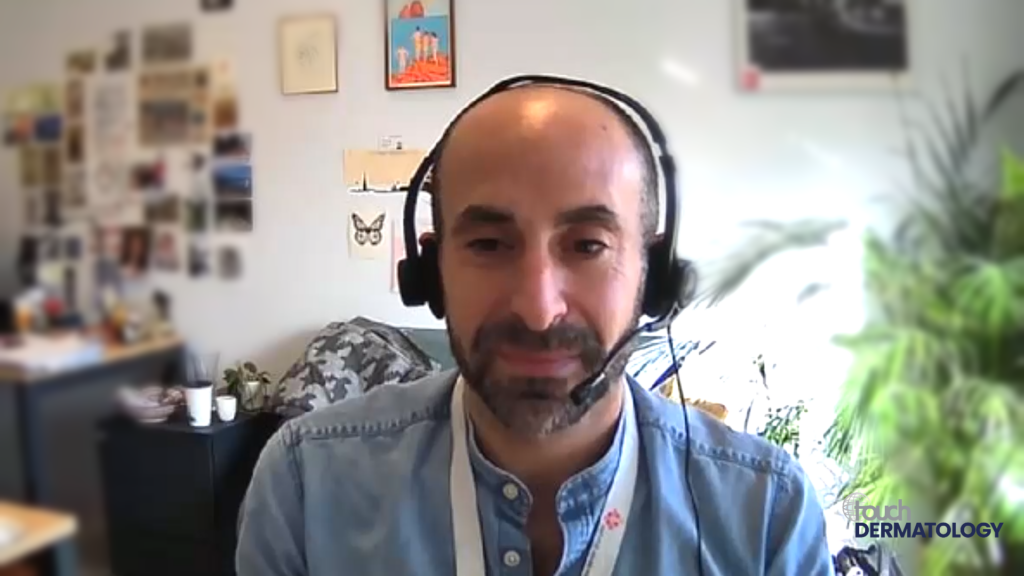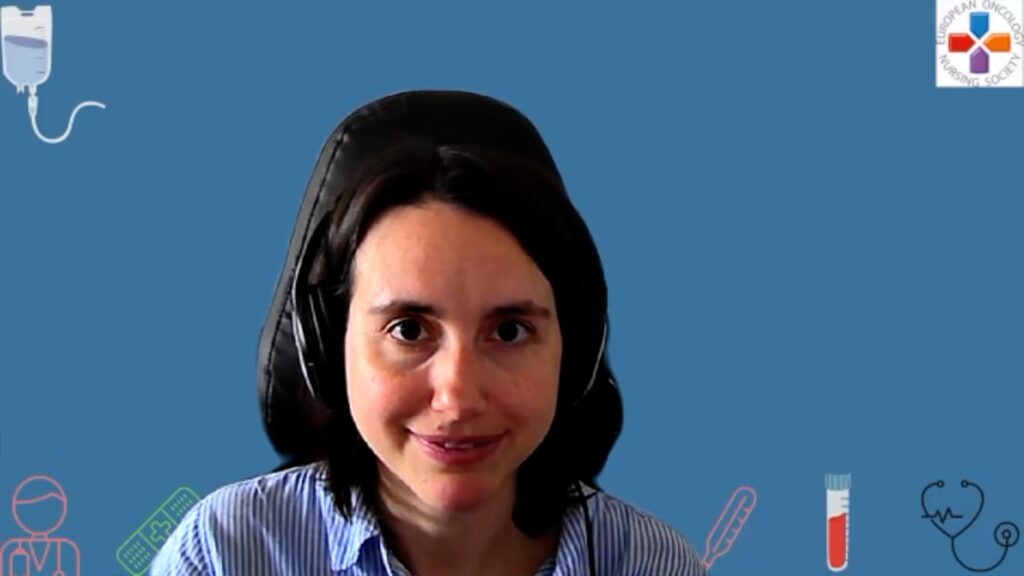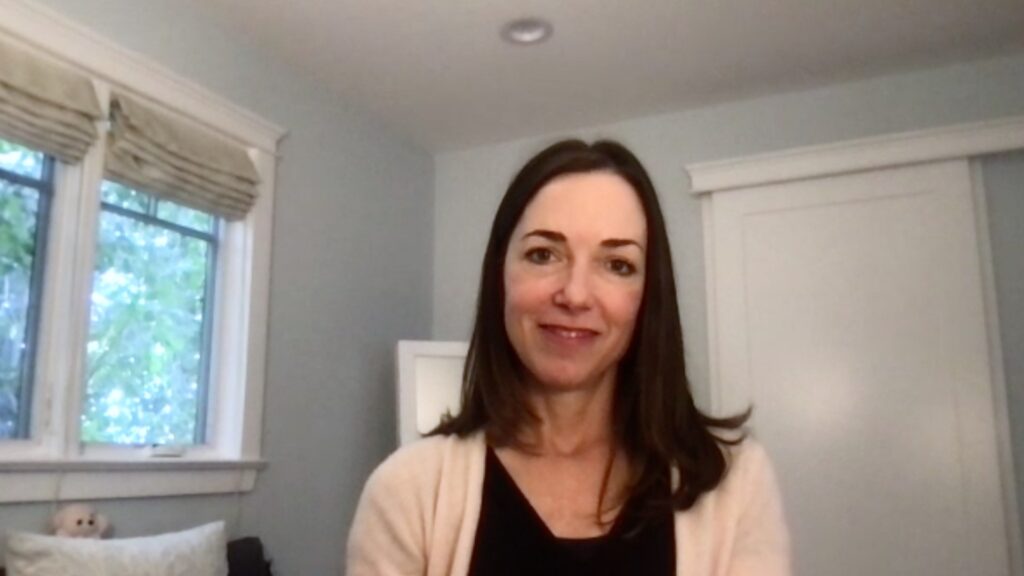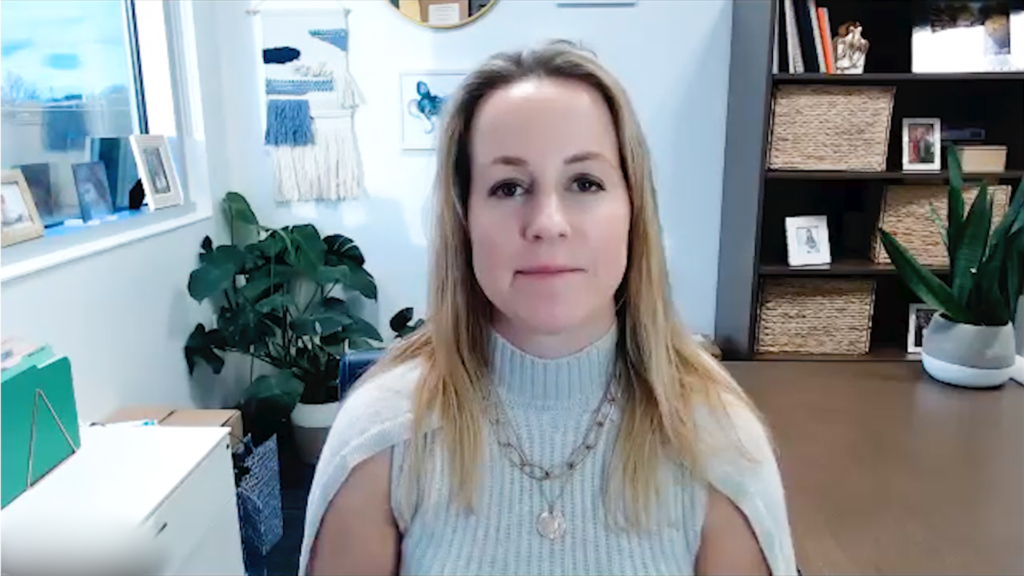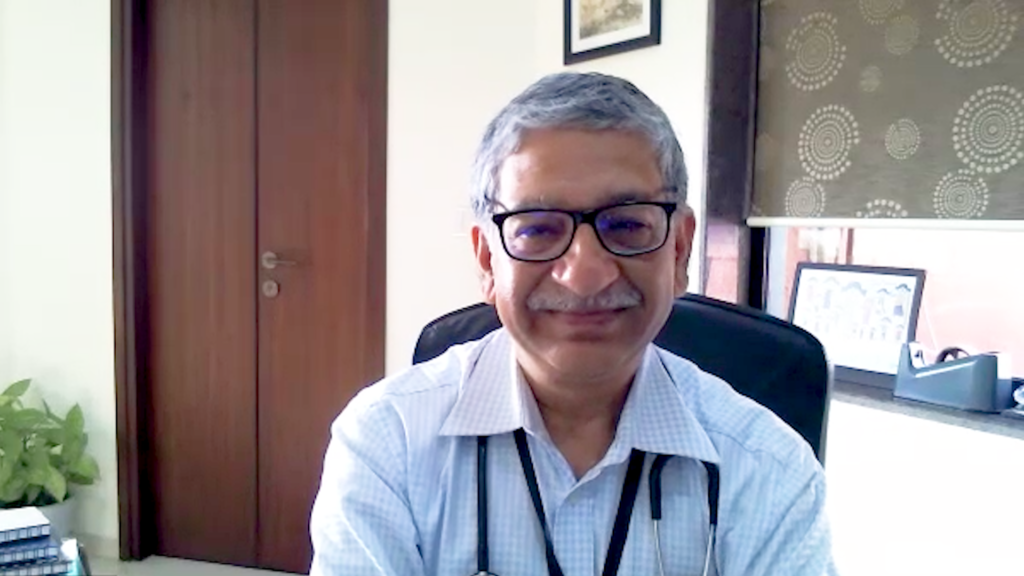touchONCOLOGY spoke with editorial board member Sara Tolaney (Dana-Farber Cancer Institute, Boston, MA, USA) to discuss her highlights from the ASCO annual meeting. She highlights data from the NATALEE study (NCT03701334), which met its primary endpoint at interim analysis, thus showing clinically meaningful benefit for patients with early breast cancer.
The abstract entitled ‘Ribociclib and endocrine therapy as adjuvant treatment in patients with HR+/HER2− early breast cancer: Primary results from the phase III NATALEE trial’ was presented at the American Society of Clinical Oncology (ASCO) Annual Meeting, 2–6, June 2023
Disclosures: Sara Tolaney is a consultant for: Novartis, Pfizer, Merck, Eli Lilly, AstraZeneca, Genentech/Roche, Eisai, Sanofi, Bristol Myers Squibb, Seattle Genetics, CytomX Therapeutics, Daiichi Sankyo, Gilead, Ellipses Pharma, 4D Pharma, OncoSec Medical Inc., BeyondSpring Pharmaceuticals, OncXerna, Zymeworks, Zentalis, Blueprint Medicines, Reveal Genomics, ARC Therapeutics, Infinity Therapeutics, Myovant, Zetagen, Umoja Biopharma, Artios Pharma, Menarini/Stemline, Aadi Biopharma, Bayer, Incyte Corp and Jazz Pharmaceuticals. She has received grant/research support from: Genentech/Roche, Merck, Exelixis, Pfizer, Lilly, Novartis, Bristol Myers Squibb, Eisai, AstraZeneca, Gilead, NanoString Technologies, Gilead, Seattle Genetics, OncoPep and Daiichi Sankyo.
Support: Interview and filming supported by Touch Medical Media. Interview conducted by Sophie Nickelson.
Filmed as a highlight of ASCO 2023
Access more content on breast cancer here
Transcript
My name is Sara Tolaney. I’m Chief of Breast Oncology at Dana-Farber Cancer Institute.
So at ASCO this year, I think one of the big highlights in breast cancer was data that was presented from the NATALEE study. It was very highly anticipated data, because we all, while we have one adjuvant CDK4/6 inhibitor, abemaciclib, this agent is really restricted to use in patients with high risk hormone receptor-positive disease. And so NATALEE became interesting because it was designed a little bit differently than the monarchE study, where in essence took the high risk patient population, but it expanded it to also include intermediate risk patients. And so in NATALEE, they enrolled both intermediate and high risk hormone receptor-positive breast cancer patients and randomized them to get endocrine therapy with or without adjuvant ribociclib, where ribociclib was given for three years, which is different than the way we give abemaciclib, which is dosed for two years, and they also used a lower dose of ribociclib than we traditionally use in the metastatic setting. So in the metastatic setting, we’re all used to using the 600 milligram intermittent dose. This study used a 400 milligram dose with the idea being that it may lead to less toxicity, less neutropenia, for example, less QTc prolongation, and so that’s why that dose was utilized.
So, what we saw was that the study did meet its primary objective. So they showed that giving the three years of adjuvant ribociclib really did lead to an improvement in disease-free survival with a 25% reduction in invasive disease-free survival events, which is really consistent with an absolute benefit of about 3%. So I think these data were super exciting because, again, we’ve all been looking for new ways to try to reduce risk of recurrence in our hormone receptor-positive breast cancer patients. I think there are some caveats, though, when thinking about if this is really ready for prime time and if we should just start prescribing it tomorrow, for example. One caveat being is that only 20% of patients had actually finished all three years of their ribociclib. So, that means that the majority of patients are still on active treatment. And one question always sort of arises in our heads is what’s going to happen as we follow these patients longer and, when they continue, when they discontinue their treatment, what’s going to happen to their outcomes? Will the benefit continue when someone discontinues treatment, or is it possible because these agents, you know, arrest the cell cycle? Is it possible that you take the brakes off and you put, you know, kind of, then let cells sort of multiply again, that then those curves could come back together again? And I think this question, you know, really did arise when we saw very early data from monarchE, everyone was sort of cautious, and maybe cautiously optimistic that this benefit would continue. But, you know, they are different drugs. And so one question is, will we see as we saw in MonarchE, that the benefit actually just gets better and better over time and the curves continue to separate? I think the other thing that we’d really like to understand is what’s the true benefit in the earlier stage patient? So, those patients maybe with stage 2A tumours in NATALEE. How did they really do with regards to their benefit? Because those are patients who are not using CDK4/6 inhibitors, and now, and it would be good to understand that lower risk population.
They did show that the benefits were similar for stage two and three patients as well as no negative and no positive patients, which I think was really reassuring to see. But again, I think seeing a bit more granular data would be really nice to help us understand as we start to think about expanding utilization into the intermediate risk patients. And then finally, I think the other thing we’ll have to think about is toxicity. You know, I think it was really nice with ribociclib that they used the lower dose, because we did see certainly that rates of neutropenia and QTc prolongation were less than we’re used to seeing in the metastatic setting, we did have a receipt that hepatic toxicity continues to remain at potential risk with about 8% of patients having grade three or higher elevated liver enzymes with this agent. And so I think, again, it will require monitoring. Just as we do for abemaciclib, you know, we do need to see these patients routinely. They do need routine laboratory analysis. With ribociclib uniquely, we will also need to do QTc monitoring. But I think overall, I think this was super exciting data to see, because it really does suggest that in patients who even have intermediate risk disease that ribociclib may be an agent that we can think about for these patients and really help prevent recurrences for them.



